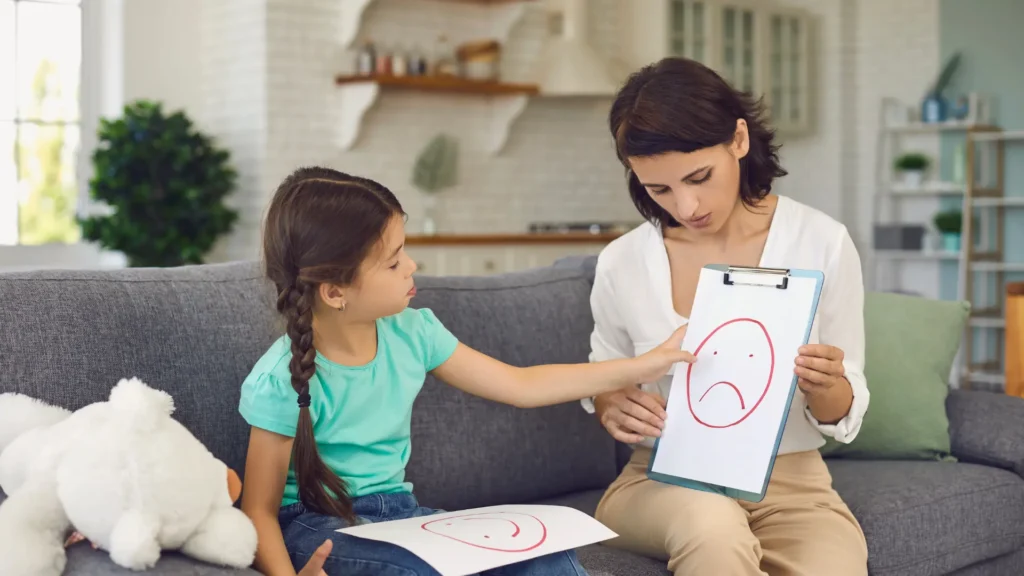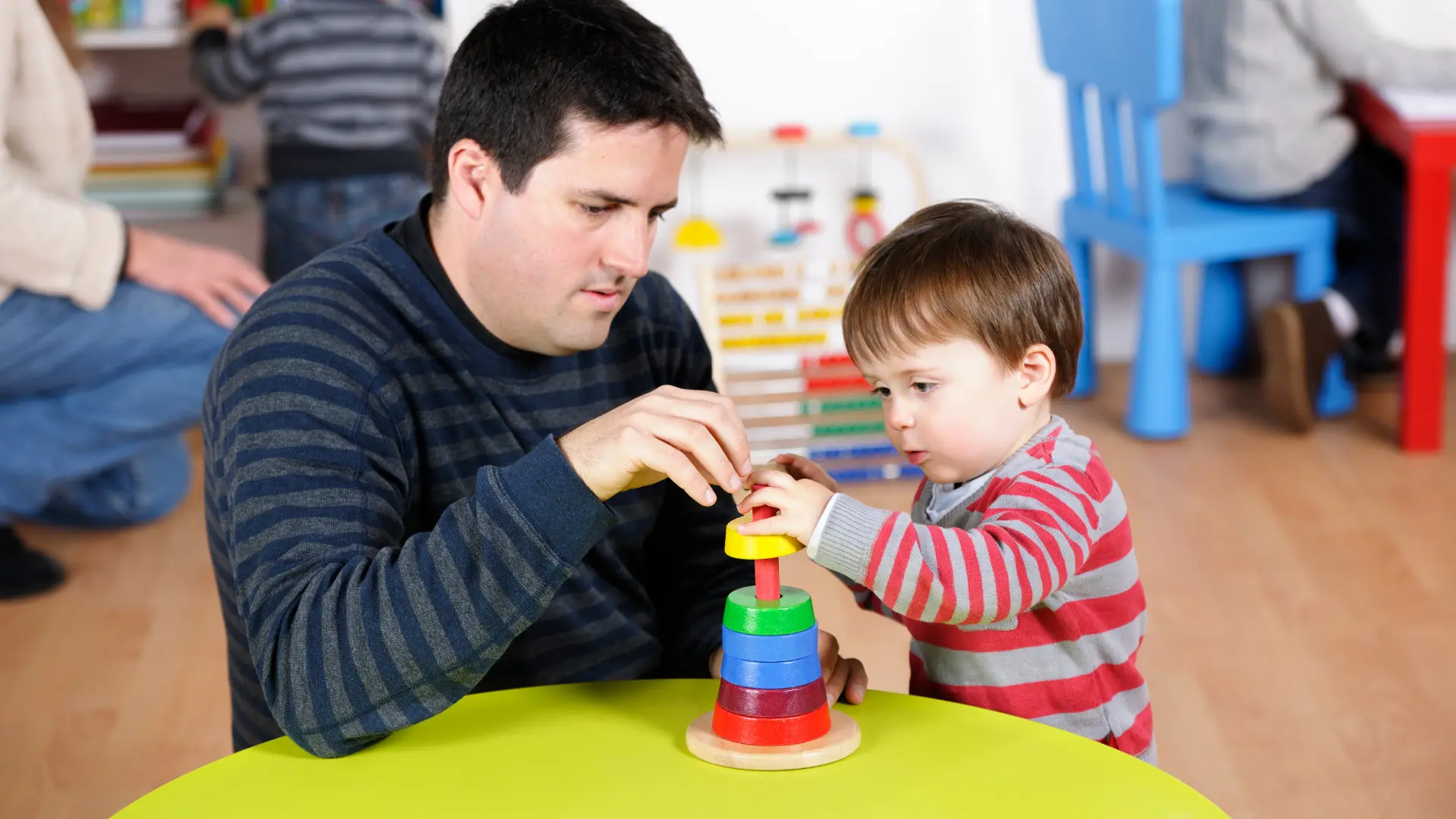The toddler years are a time of incredible discovery and burgeoning personality. Your once-cuddly baby is now a walking, talking (or babbling!) little individual with strong opinions and an unshakeable desire to explore their world. This phase is filled with wonderful moments, but it also often brings a set of challenges that can leave parents feeling frustrated, confused, and exhausted: the sudden, floor-thumping tantrums, the defiant shouts of “No!”, and the constant testing of every rule.
I’m Dr. Santosh Madrewar, Senior Paediatrician and Founder of Borneo Hospital. With our dedicated paediatric departments across Thane, Nashik, Chhatrapati Sambhaji Nagar, and Raipur City, I have supported thousands of families through this dynamic and often misunderstood stage of development. The key to navigating the toddler years successfully is to shift our mindset: from trying to ‘control a naughty child’ to understanding how to ‘guide a developing child’.
This article aims to provide a practical guide for Indian parents on how to encourage Positive Behaviour in toddlers. We’ll explore the ‘why’ behind their actions and introduce positive, respectful discipline strategies that not only manage challenging moments but also build essential life skills and strengthen your precious parent-child bond.
Understanding Your Toddler’s World (The “Why” Behind Their Behaviour)
Before we can guide our toddlers, we must first understand them. Much of their challenging behaviour stems from their incredible, but incomplete, development.
1. The Developing Brain:
A toddler’s brain is a work in progress. The prefrontal cortex – the part responsible for reasoning, impulse control, and managing big emotions – is still very underdeveloped. They are often completely overwhelmed by feelings of anger, frustration, or disappointment that they simply do not have the brain wiring to control yet.
2. The Powerful Drive for Independence:
This is the “Me do it!” or “Main karunga!” stage. Your toddler has a natural and healthy urge to assert their autonomy and see themselves as an individual. This desire often outpaces their physical abilities, leading to immense frustration, which can then explode as a tantrum.
3. Limited Language Skills:
Imagine feeling a huge emotion but not having the words to express it. This is a toddler’s daily reality. When they can’t say, “I’m frustrated that the block won’t fit,” or “I’m sad we have to leave the park,” they often express these big feelings through actions – hitting, throwing, crying, or screaming.
4. Testing Boundaries is Their Job:
Toddlers are little scientists. They learn about the rules of their world by testing the limits. “What happens if I throw my food?” is not usually meant to be defiant; it’s a genuine experiment to understand cause and effect. It is a sign of healthy curiosity.

The Foundations of Positive Discipline
Positive discipline is an approach that is both kind and firm. It’s not about punishment or shame, nor is it permissive parenting where there are no rules. It’s about teaching our children valuable social and emotional skills for life.
Connection Before Correction:
This is the single most important principle. A child who feels connected to you, seen, and understood is far more likely to cooperate. Before correcting a behaviour, take a moment to connect – get down to their level, make eye contact, offer a hug, or validate their feeling.
Consistency is Key for Security:
Children feel safer and learn faster when rules and responses are predictable. As much as possible, all primary caregivers – parents, grandparents, an ayah – should be on the same page with core family rules. This create a secure environment.
Your Toolkit: Practical Strategies for Encouraging Positive Behaviour
Here are some effective, positive strategies you can use in your daily interactions to guide your toddler.
- Set Clear, Simple, and Consistent Limits: Toddlers can’t handle complex rules. Have a few simple, important family rules (e.g., “We use gentle hands,” “Food stays at the table,” “Feet on the floor”). Enforce these calmly and consistently every time.
- Use Positive Reinforcement & Praise: Actively try to “catch them being good.” When you see your child sharing, waiting patiently, or helping, praise them specifically. Instead of a generic “good girl,” try, “Thank you for waiting so patiently for your turn. That was wonderful!” This reinforces the behaviour you want to see.
- The Power of Redirection: For young toddlers, distraction and redirection are often the most effective tools. Instead of a long lecture on why they shouldn’t be pulling books off a shelf, redirect their energy: “Oh, those are Mummy’s books! Let’s go find your special books to look at.”
- Offer Limited, Acceptable Choices: Toddlers crave control. Giving them simple choices empowers them and dramatically reduces power struggles. The key is that both choices must be acceptable to you.
- Instead of: “Wear your jacket now!”
- Try: “It’s time to go out. Would you like to wear your red jacket or your blue jacket?”
- Use “When… Then…” Statements: This positive framing encourages cooperation.
- Instead of: “If you don’t tidy your toys, we are not going to the park!”
- Try: “When you have put your cars in the basket, then it will be time to go to the park.”
- Acknowledge and Name Their Feelings: Validating your toddler’s emotions is vital for building their emotional intelligence. It shows them you understand. “You are very angry that I turned off the TV. It’s hard to stop when you’re watching your favourite cartoon. I understand.” Remember, validating the feeling is not the same as giving in to the demand.
- Use Natural & Logical Consequences (for Older Toddlers): As they approach age three, they can begin to understand simple consequences. The consequence should be respectful and related to the behaviour.
- Natural Consequence: “If you throw your roti on the floor, you are showing me that you are all done with lunch. Mealtime is over.”
- Logical Consequence: “If we cannot play gently with the blocks and keep throwing them, then we need to put the blocks away for a while.”
Managing the Inevitable: The Toddler Tantrum
Tantrums are emotional explosions, not a sign of ‘bad behaviour’. They are a sign of a brain under construction, overwhelmed by big feelings.
What to Do During a Tantrum:
- Stay Calm: This is the hardest, but most important part. Your calm presence is their anchor. Getting angry, shouting, or threatening will only fuel the fire. Take deep breaths yourself.
- Ensure Safety: Your first job is to make sure they are safe. If they are thrashing about, move them (or any dangerous objects) to a safe, clear space.
- Validate the Feeling, Hold the Boundary: Get down to their level. Use a calm, low voice. “I know you are very, very upset we can’t have another biscuit. It’s so disappointing. I understand you’re sad. The answer is still no.” You are acknowledging their emotion without giving in to the demand.
- Don’t Try to Reason or Bribe: A toddler in the midst of a tantrum is in their ‘downstairs brain’ – the emotional, reactive part. They cannot process logic or explanations. Bribing them to stop (“If you stop crying, you can have the biscuit”) teaches them that tantrums are an effective tool.
- Wait it Out: Stay close and present to show them you are there and they are safe, but often you just have to let the storm pass. Don’t try to force hugs or talk excessively.
What to Do After a Tantrum:
- Once the crying subsides and they seem ready, offer comfort. A hug, a cuddle, a sip of water.
- Briefly and simply reconnect and label the emotion: “That was a big, angry feeling. It’s all gone now. I love you.”
- Move on with your day. Don’t hold a grudge, lecture further about the tantrum, or give in to the original demand.

The Power of Parental Role Modelling
Remember, your child is your mirror. They learn more about how to manage emotions and behave respectfully by watching you than from any lecture.
- Model patience and respectful communication, even when you are frustrated.
- When you make a mistake, like losing your temper, model a sincere apology. “I’m sorry I raised my voice. I was feeling frustrated. Let’s try again.” This teaches invaluable lessons about relationships and making amends.
Borneo Hospital: Your Partner in Child Development
The toddler years can be full of questions about behaviour.
- Guidance During Check-ups: Your child’s regular well-child visits at Borneo Hospital are the perfect opportunity to discuss any behavioural challenges or parenting questions you may have with myself or my experienced paediatric colleagues.
- Assessing Development: We can help you understand if your toddler’s behaviour is age-appropriate for their developmental stage and provide reassurance.
- Referrals When Needed: If there are significant behavioural or developmental concerns that go beyond the typical range, we can facilitate timely referrals to trusted specialists like developmental paediatricians or child psychologists for further support.
The toddler years, while sometimes testing our patience, are a dynamic and wonderful stage of development. Encouraging Positive Behaviour is not about seeking perfect obedience, but about guiding your child with empathy, connection, and consistency.
By understanding their developing world, setting firm but kind limits, redirecting unwanted actions, validating their big feelings, and managing your own reactions calmly, you are not just managing difficult moments – you are building a foundation of emotional intelligence and a strong, trusting relationship that will last a lifetime. Enjoy this energetic, challenging, and beautiful stage with your little one.




